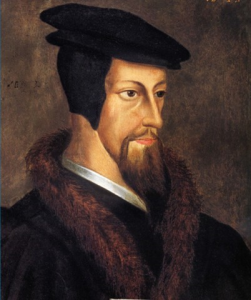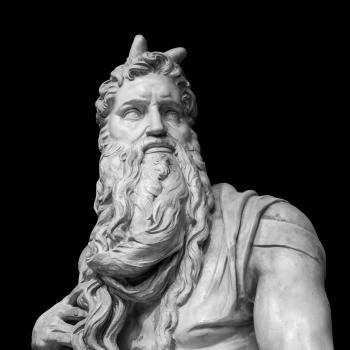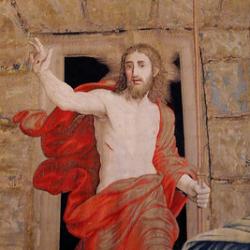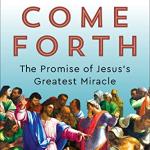John Calvin
There are few Protestants more influential than the French theologian John Calvin. His Institutes of the Christian Religion have shaped Protestant theology for 500 years. Calvin is a brilliant thinker, and his interpretation of Scripture is usually insightful. He is formidable and worth reading.

Modern Calvinists often use the acronym TULIP to describe the Calvinist system:
T=total depravity. Sin ruins every area of existence, including human will and intellect. No person can turn to God unless God comes to them first.
U=unconditional election. God’s choice of whom to elect for salvation is not conditioned by human behavior or God’s foreknowledge of their future faith.
L=limited atonement. Christ died for the elect, not for the whole of humanity.
I=irresistible grace. God’s grace is so powerful that humans cannot resist it. God works in the human mind to break down all resistance to His calling.
P=perseverance of the saints. This doctrine often gets called “once saved always saved,” but that is a bit of a caricature of the doctrine. It means that the ones who are truly in Christ will remain in Christ until the end. The doctrine does not teach that after a profession of faith a person can do whatever they want and go to heaven.
It is important to note that the use of TULIP as an acronym for Calvinism is not particularly old. I have read that the earliest written use of TULIP was in the early 1900’s. It is also worth noting that it is not clear that Calvin himself would describe his doctrine this way.
Calvinism and Me
Before I attended seminary, I flirted with Calvinism, perhaps better I wrestled with Calvinsim. I remember while making campus visit to Southern Baptist Theological Seminary (Southern) in Louisville, I had some real struggles understanding God’s will and how salvation works. I was about 21 or so and a Philosophy major at Western Carolina University. Knowing God’s call to serve, I was trying to discover where I should study for ministry after completing college.
Southern was in the throes of controversy. Albert Mohler had just become president, and he was a thoroughgoing Calvinist. Now, this might surprise some of my colleagues for whom Mohler is on the same spiritual level as Ayatollah Khomeini, but I have a lot of respect for Mohler’s intellect. Even though I disagree with him on some very important issues, I think he is a formidable voice, and his tenure at Southern has been successful.
As I wandered the grassy center of the campus, played basketball with some of the students and professors, and marveled at the orange and yellow leaves on Southern’s tree-lined campus, I was deep in thought about the nature of salvation and God’s providence. I was also searching for God’s leadership.
I did not end up sensing God’s leadership to attend Southern and went in a different direction. So, I was not immersed in Calvinism the way a student at a Calvinist institution might be. That is not to say I do not understand Calvinism. I have a good grasp of the system. I have read the Institutes and have a well-worn copy of the book in my office.
Calvinism and the Mind
There are aspects of Calvinism I find intellectually satisfying. Calvinism is logical and linear. It gives the reader a coherent lens with which to read Scripture and do theology. Perhaps it is the philosopher in me, but I love great systems of thought with internal consistency and the power to interpret data.
When Calvin talks about how one could know God, God’s majesty and power, God’s grace, or the relationship between the New and Old Testaments, there are few Christian thinkers with more insight. As an interpreter of Scripture, Calvin is very helpful. Even his chief rival Jacob Arminius thought his commentaries were excellent.
Calvin, the Will, and God’s Goodness
In reading the works of others who have rejected Calvinism, I often see their concern about freedom of the will. For them, Calvinism is an affront to humanity because it limits libertarian free will.
That is not exactly my dispute with Calvinism. Our wills are not as free as we would like to think. They are often controlled by the thought structure of the society around us, our natural penchants, our home environments, and our commitments. Martin Luther once said, “Here I stand, I can do no other! God help me!” Was Luther free to do something else, or was it the case that his commitments and actions had so shaped his mind that recanting was impossible?
There are other constraints on the human will. Addictions control the will, by definition. Physical limitations can control the will. The broken nature of human reasoning can control the will.
There are also philosophical and theological systems that can reconcile free will with determinism. They are called “compatibilism.” Since compatibilism is a relatively new philosophical concept, using the term to describe Calvinism is not useful. I suspect, however, that Calvin would find the idea helpful. Calvin does speak a great deal about the freedom of the will, but he does so in what he calls “secondary causes.”
Free Will Is Instrumental
I think free will is important, but not for the reasons one might suppose. I think free will is important not because of what it says about humans, but because of what it says about God. In Calvinism, everything happens by eternal decree. All events in human history are decreed to occur by God’s plan. Calvin goes so far as to eliminate the distinction between what God causes and what God allows, unlike Thomas Aquinas who maintains that difference (See Institutes III, 23, 8).
If God causes every event, I get stuck thinking that God has caused a lot of evil. This evil would surely be a problem with God’s character. I know Calvinists have a ready response to this charge. For me, however, their response is not convincing. If God can cause evil for His glory, I think we have a lesser God than the one revealed in Jesus Christ.
I think we end up with a God who is not good. I want to maintain some freedom of the will in humans to hold on to God’s everlasting goodness. God does not cause evil, humans do. Free will is not so much an end for me, but an means to protect God’s goodness.
Limited Atonement
Modern Calvinism is arguably different than Calvin’s vision. One area of dispute is what Calvinists call “limited atonement.” Limited atonement is the doctrine that Christ did not die for the sins of the whole world, He died for the elect–those God has decreed would become believers. I think Calvin is unclear on the matter. In some places, it seems he argues for a limited atonement. There are other passages, however, where Calvin refers to Jesus’ sacrificial death for humanity (See Institutes II.13.3). In a sermon Calvin also refers to souls that perish even though Jesus had purchased their pardon.[1] So, there is some debate even among Calvinists as to Calvin’s actual position here.
I humbly suggest the New Testament argues for a universal atonement. 1 John 2:2 reads, “He is the propitiation not only for our sins but for the sins of the whole world.” 1 Timothy 1:6 reads, “… who gave Himself a ransom for all…” John 3:17 “For God did not sin His Son to condemn the world but to save the world through him” (emphasis added). All of these texts indicate a universal scope to the atonement. The modern Calvinists who subscribe to limited atonement are often left in a position where “all does not mean all.”
Election
Election is the doctrine of God’s choice of who will believe. In common parlance, the term “predestination” replaces election. Election is an old theological concept, and it did not originate with Calvin. Calvin quotes Augustine extensively on this point. In a hat tip to Augustine, he says he could construct his entire doctrine of election from Augustine. For Calvin predestination is double, meaning God has elected some to eternal life and some to eternal perdition.
Calvin believed in God’s unconditional election. By unconditional election, Calvin means that God’s choice of who would become believers is not conditioned by God’s prior knowledge. God knows who will believe, but God knows who will believe because God chose them. Conditional or conditioned election argues God’s election is based on God’s foreknowledge. God knows who will believe, therefore God elects based on His knowledge.
This disagreement misses an important point. Election is not individual, it is corporate. God elects that there will be a people called the Church, and those who enter into the Church are the ones who believe. God indeed knows who will believe, so His creation of the world does bring that group into being. In that sense, election becomes individual. The focus, though, of the New Testament’s discussion on the matter is corporate. God elects Israel, and God elects the Church.
Fatalism
In his discussion of divine governance, Swiss Theologian Karl Barth argues the difference between fatalism and God’s governance is that God is governing and not the fates. Barth famously loved Calvin, and his system of providence is remarkably similar, as was his goal. Barth was right in that in a system like his or Calvin’s one must make a distinction between fatalism and determinism. I think, however, the distinction is not so easily made, at least not from a human perspective. The saved are saved without regard to conditions, and the lost are lost without regard to conditions. From the perspective of the lost, does it really matter if it were fate or determinism that finalized the outcome of your existence?
The Calvinists in My Life
Unfortunately, any discussion of Calvinism can degenerate quickly. Partisans on both sides critique each other with harsh accusations. It would be wise to stop. Accusations never persuade. Abusive speech is unbecoming. I have never met a person who changed their mind because someone called them names. Some of the believers who had (and have) the most positive influence on my life are Calvinists. I hope the Calvinists in my life would think the same of me.
[1] https://biblicalstudies.org.uk/pdf/eq/1983-2_115.pdf, 116.
More By Layne Wallace: 9/11 Remembered












